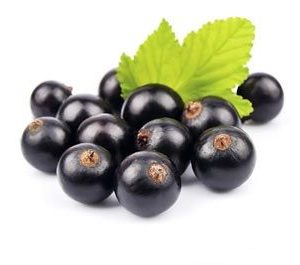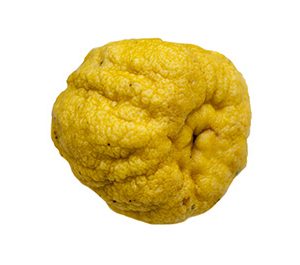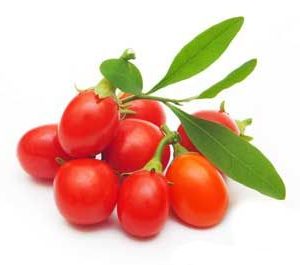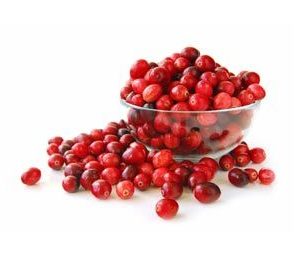From Iran to the Himalayas and beyond, tangy pomegranates are mentioned in the Bible, and are one of the world’s most popular and cultivated fruits even today. After being introduced in California by Spanish settlers in 1769, they’re still grown in the American west. They require full sun exposure to produce the best flavor.
Pomegranates have distinctive and glossy leaves, leathery light-red skin and a floral crown (or calyx) at the top. The flavor and juiciness only improves after several months of cool, preferably dark storage.
The inside of the fruit is completely unique, filled with ruby-red arils, or seed sacs (600 of them on average) separated by thin, bitter and white membranes. The arils make an attractive, tasty garnish when sprinkled on roasted or grilled meats.
Pomegranates can also be added to marinades, sauces and salsas, and can be used to create new flavors for your favorite cuts of meat and fish. You can also try dropping the arils into sparkling cider for a festive, yet healthy holiday drink.
Pomegranates are easily eaten by removing the crown with a paring knife and scoring through the tough rind. It’s also helpful to immerse the fruit in a bowl of cool water, holding it under the surface to gently break apart and separate the arils, which will fall to the bottom. The floating bits of rind and membrane can then be skimmed from the surface.
For a fresh glass of pomegranate juice, place a few handfuls of arils into a bag and flatten them gently with a rolling pin. Pour from the bag, strain the seeds and enjoy!
Health Benefits of Pomegranates
Low in saturated fat and cholesterol, pomegranates are an excellent source of vitamin C, providing 10.2 milligrams of the daily recommended value, as well as 16.4 micrograms of vitamin K. Chock-full of minerals, they provide copper, potassium, folate, thiamin, vitamin B6 and calcium with ample amounts of antioxidant polyphenols thrown in. Three such polyphenols are tannins, anthocyanins and ellagic acid.
While most fruits contain some combination of the mentioned antioxidants, fresh pomegranate juice has all three, as well as the antioxidant punicalagin, which research indicates may be effective in managing inflammation.
Pomegranates offer dietary fiber to help keep your digestive system regulated, which may influence weight management and cholesterol level control, while at the same time helping improve insulin resistance and intestinal inflammation. In addition, they may help protect against cancer, as indicated in one study.
While pomegranates contain numerous benefits, be sure to consume them in moderation, as they contain fructose, which may be harmful to your health in excessive amounts. You should also remember that commercially made fruit “drinks” aren’t a good choice for you and your family. Read why you should beware of processed fruit juices. The table below provides an overview of the nutrients in pomegranates.
Pomegranates Nutrition FactsServing Size: 3.5 ounces (100 grams), raw |
||
| Amt. Per Serving |
||
| Calories | 83 | |
| Calories from Fat | 10 | |
| Total Fat | 1.17 g | |
| Saturated Fat | 0 g | |
| Trans Fat | ||
| Cholesterol | 0 mg | |
| Sodium | 3 mg | |
| Total Carbohydrates | 18.7 g | |
| Dietary Fiber | 4 g | |
| Sugar | 13.67 g | |
| Protein | 1.67 g | |
| Vitamin K16.4 mcg | Vitamin C | 10.2 mg |
| Calcium10 mg | Iron | 0.3 mg |
Studies on Pomegranate
One study conducted on pomegranates proposed that its juice, which is rich in polyphenols with potent antioxidant activity, may help inhibit cell proliferation, invasion and promote apoptosis (cell death) in various cancer cells, particularly against prostate cancer. The positive conclusion provided further understanding into the molecular mechanism of inducing prostate cancer apoptosis using pomegranate juice, with dialogue on how to go about developing new mechanism-based chemopreventive strategies for treating prostate cancer using this fruit.
Another study tested the potential anticancer effects of pomegranate extracts and genistein (plant-based phytoestrogen) on the inhibition, proliferation and apoptosis of breast cancer cell cultures. Both the extracts and genistein showed significant and positive dose- and time-dependent effects on inhibiting cancer cells, but significantly higher in combination treatments rather than single treatments.
Pomegranate Fun Facts
Pomegranates factor greatly into Greek culture as a symbol of fertility and prosperity. During the Christmas season, Greeks hang pomegranates in front of their house, and smash them at midnight on Christmas Eve. The number of seeds left on the ground indicates the amount of luck the family will have the upcoming year.
Summary
Pomegranates are not only delicious and versatile, but also one of the healthiest foods you can eat. This exotic fruit provides a wide array of benefits, each with its own essential job: vitamins C and K, copper, potassium, folate, thiamin and fiber, plus the antioxidants tannin, anthocyanin, ellagic acid and punicalagin.
Pomegranates are a ready-made fruit that contains what you need for optimum health.







Reviews
There are no reviews yet.